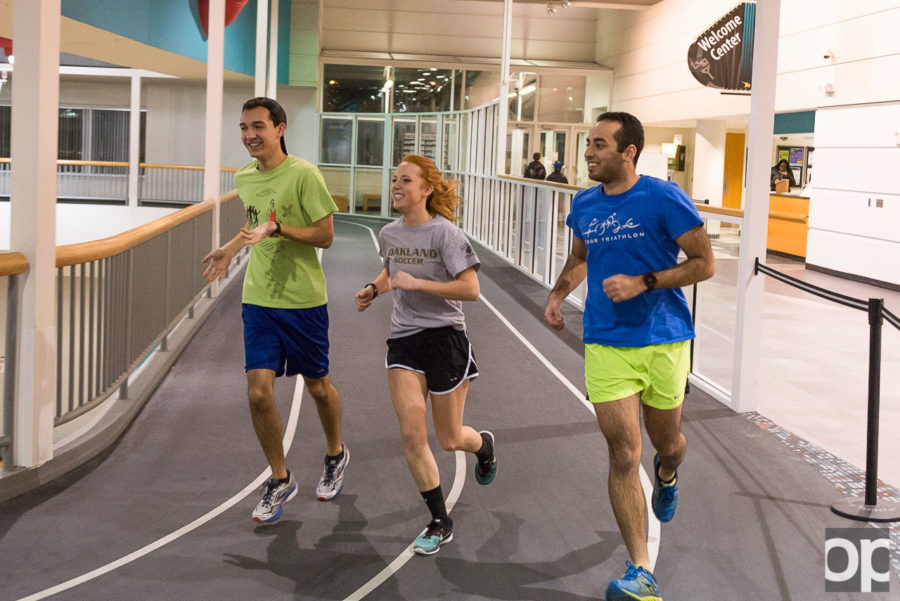Exercise linked to better grades
Studies show that students who participate in vigorous activities tend to get better grades.
According to a press release from the American College of Sports Medicine (ACSM), a study of 266 undergraduates showed higher GPAs among those who more often engaged in at least 20 minutes of vigorous physical activity.
The U.S. Center for Disease Control said that while exercising moderately, people can talk but not sing, while vigorous activity makes it difficult to say more than a few words without pausing for breath.
After looking at the factors that could correlate with GPA including gender, race, study time, athletic participation, class standing and major, the research team from ACSM discovered that vigorous physical activity was still associated with GPA. The team formed an equation that includes physical activity, gender and major to predict a person’s GPA.
“Students who participate in dynamic activity seven days per week have GPAs that average .4 higher on a scale of 4.0 than those who participate in no vigorous activity,” Jennifer Flynn, one of the researchers, said.
According to a study done at Purdue University in Indiana, Tricia Zelaya, assistant director for student development, said, “students who are motivated by fitness and wellness tend to have better time management skills, and research shows that being fit is good for the mind.”
According to the study, which was completed in 2010, more than 1,820 students visited Purdue’s Recreational Sports Center at least 16 times a month and earned a GPA of 3.1 or higher. Students who used the gym at least seven times a month had an average GPA of 3.06.
The ACSM suggested that adults should get at least 150 minutes (2.5 hours) of moderate to vigorous intensity exercises every week. The recommendation can be met with 30-60 minutes of moderate intensity exercise five days per week, or 20-60 minutes of vigorous intensity exercise three days per week.
“There is a connection between exercising and receiving better grades. Physical activity increases cognitive thinking, helps with self-esteem and self-confidence,” Terry Dibble, health sciences lecturer at OU, said.
However, according to Brian Goslin, associate professor and director of the Masters of Science in Exercise Science Program at OU, research has not confirmed that exercise will cause a higher GPA.
“Saying that [exercising] leads to better grades is stretching it since there is no known cause-effect relationship between regular physical activity and better grades,” he said.
There is a correlation between exercising and GPA – as one increases, the other tends to increase. This does not mean that exercising causes higher grades but does suggest a relationship.
“The association between better academic performance and being physically active has been hypothesized to be due to improved brain flow and oxygen supply to the brain, and the self-discipline of being physically active carries over to doing well in school,” Goslin said.
On campus, students who haven’t exercised previously can connect with the Wellness and Fitness staff at the Campus Recreation Center for a Wellness evaluation and initial exercise program guidance.








